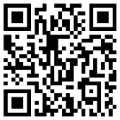Interactive E-Modules with Discovery Learning: Increase Informatics Motivation for Vocational Students
Abstract
Full Text:
PDFReferences
Nabilah, B., Zakir, S., Murtiyastuti, E., & Mubaraq, R. I. (2022). Analisis Penerapan Mata Pelajaran Informatika dalam Implementasi Kurikulum Merdeka Tingkat SMP.
Zulaiha, S., & Meldina, T. (2022). Problematika Guru dalam Menerapkan Kurikulum Merdeka Belajar. Terampil: Jurnal Pendidikan Dan Pembelajaran Dasar, 9(2), 163–177. https://doi.org/10.24042/TERAMPIL.V9I2.13974
Susanti, L. (2020). Strategi Pembelajaran Berbasis Motivasi. Elex Media Komputindo. https://books.google.co.id/books?id=DcrTDwAAQBAJ
Amanullah, M. A. (2020). Pengembangan Media Pembelajaran Flipbook Digital Guna Menunjang Proses Pembelajaran Di Era Revolusi Industri 4.0. http://journal.umpo.ac.id/index.php/dimensi/index
Wahyono, Musthofa, & Asfarian, A. (2021). Buku Panduan Guru Informatika.
Ramandhani Pujiningtyas, M., & Budi Minarti, I. (2023). Implementasi Discovery Learning Pada Materi Ekosistem Dalam Mewujudkan Profil Pelajar Pancasila. Jurnal Lentera Pendidikan Pusat Penelitian LPPM UM METRO, 8(1).
Pangastiningasih Etikamurni, D., Istyowati, A., & Ayu, H. D. (2023). Upaya Peningkatan Motivasi Belajar Fisika Melalui Discovery Learning-Berdiferensiasi di Era Kurikulum Merdeka. 5(2). https://doi.org/10.21067/jtst.v5i2.8904
Bakri, F., Muliyati, D., & Nurazizah, I. (2018). Website E-Learning Berbasis Modul: Bahan Pembelajaran Fisika Sma Dengan Pendekatan Discovery Learning. 3(1), 90–95.
Tegeh, I Made, dkk. (2014). Model Penelitian Pengembangan. Yogyakarta: Graha Ilmu.
Rahman, S. (2021). Pentingnya Motivasi Belajar Dalam Meningkatkan Hasil Belajar.
Elmunsyah, H., Hidayat, W. N., & Asfani, K. (2019). Mobile app-based learning media to facilitate student learning. In World Transactions on Engineering and Technology Education 2019 WIETE (Vol. 17, Issue 1). https://www.researchgate.net/publication/331995917
Sailer, M., Hense, J. U., Mayr, S. K., & Mandl, H. (2017). How gamification motivates: An experimental study of the effects of specific game design elements on psychological need satisfaction. Computers in Human Behavior, 69, 371–380. https://doi.org/10.1016/j.chb.2016.12.033
DOI: http://dx.doi.org/10.17977/um010v6i22023p%25p
Refbacks
- There are currently no refbacks.
 | Letters in Information Technology Education (LITE) |

1.png)
1.png)
4.png)
1.png)
.png)
.png)

3.png)
1.png)
1.png)

3.jpg)